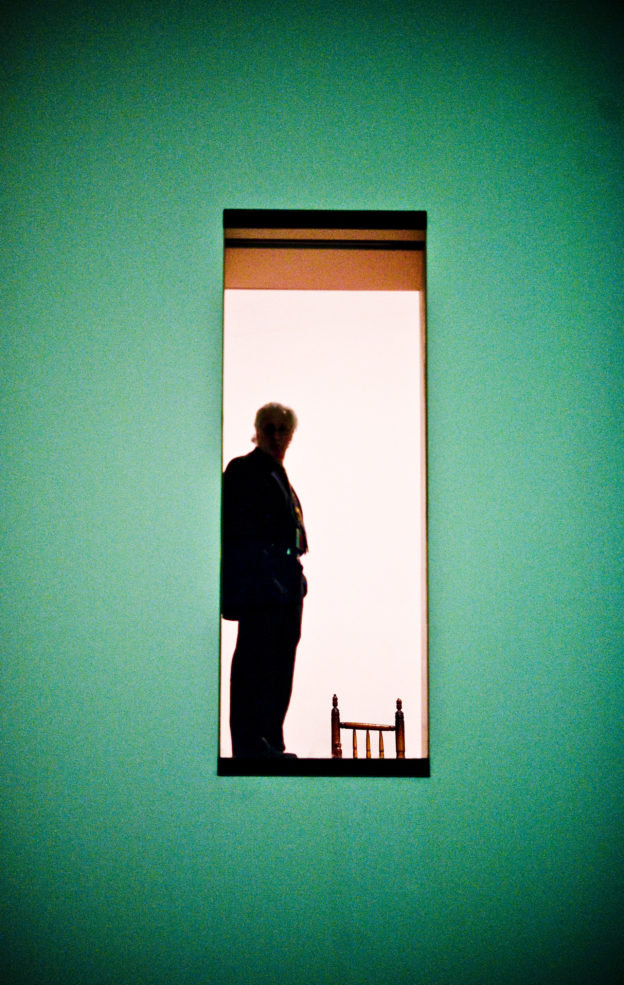I’ve been thinking about what it takes to create the conditions for lasting change. For example, many countries around the world have taken on the challenge of promoting freedom, equality, liberty, and justice. While there have been signs of progress in different places at different points in time, it sure seems to me that we have been losing ground lately.
As I was reading Doris Kearns Goodwin’s new book, An Unfinished Love Story, it struck me that the 1960s were a truly unique period in history where several powerful forces came together to accomplish major change. First, the youthful energy of John F. Kennedy (43 when he became President) inspired the country to “ask not what your country can do for you, but what you can do for your country.” After Kennedy’s tragic assassination, Lyndon Johnson (55 at the time) tapped his formidable skills in Congress to pass and implement the Great Society Platform that reduced poverty, racial injustice and urban decay and improved civil rights, education, medical care, environmental protection, and transportation. Over the course of both the Kennedy and Johnson administrations, Martin Luther King (31 in 1960) emerged as a spiritual leader who could mobilize people of all races and ethnicities to not only dream of possibilities, but also demand change. The book made me wonder if a combination like JFK, LBJ, and MLK was required to produce significant change. It also made me question how likely it is that such a perfect combination will ever happen again.
I found the backstory in the book as compelling as the stories of the dramatic historical events in the 60’s. It turns out that Doris Kearns Goodwin’s husband of 42 years was Dick Goodwin, who worked intimately with Ted Sorenson during the Kennedy administration and served as LBJ’s primary speech writer during his term. It was Goodwin who came up with the Great Society idea and who wrote pivotal speeches, including LBJ’s pitch to Congress and the Nation to pass a comprehensive voting rights act in the middle of the Selma crisis. Goodwin was only 27 years old when he started working at the White House. His speeches are mind blowing and heart bending. I can’t recommend this book highly enough.
Unfortunately, the weaving together of the Great Society had already started unravelling by the end of the 60’s due to the assassinations of JFK, RFK, and MLK as well as the foolish escalation of the American War in Vietnam. I’m afraid our fabric is still torn and continues to fray further. At this point our democracy is hanging by a thread.
As I read this book, it occurred to me that, instead of waiting for a savior/shero/hero to rescue us from our sins and sinkholes (or some historically unique combination of exemplary leaders), we all need to make some profound choices concerning how we view the world, i.e. we need to develop a new set of “ize” that enable us to see life through a different lens. Specifically, we need to choose to:
- Strategize instead of weaponize
- Humanize instead of demonize
- Harmonize instead of polarize
- Democratize instead of tyrannize
- Personalize instead of popularize
- Sensualize instead of sexualize
- Socialize instead of privatize
- Philosophize instead of trivialize
- Mobilize instead of monetize
- Globalize instead of tribalize
While I could riff endlessly on each of these topics, let me share some brief ideas on what each choice means to me. Forgive me for taking a formulaic approach for each of the 10 choices. I needed to find a way to avoid wild rants.
- Strategize instead of weaponize. This means that we search exhaustively for diplomatic approaches to settle conflicts before jumping reactively to military “solutions.” The choice is to address the root causes of problems instead of going immediately to the lethal weapons we have at our disposal to “deal” with situations. While we have plenty of evidence to support the notion that military solutions today often create bigger problems tomorrow, we still turn to those solutions first instead of as a last resort. We even weaponize institutions against our perceived enemies instead of creating more peaceful strategies to accomplish our goals.
- Humanize instead of demonize. This means saluting the best in who people are. The choice is to see what makes each person human instead of seeing only the worst in each other. It requires us to forgive people for not being who we wish they would be and to focus on their best qualities.
- Harmonize instead of polarize. This means doing all we can to bring people together instead of pushing them apart. The choice is to build bridges or to widen divides. It requires us to experience internal harmony as a first step to creating external harmony.
- Democratize instead of tyrannize. This means to share power instead of hoard power. The choice is to focus on developing others instead of dominating them. Creating a more democratic environment requires us to think pluralistically and inclusively.
- Personalize instead of popularize. This means understanding the unique gifts and needs of each person. The choice is to tailor solutions to meet particular needs of individuals and groups instead of continually pressuring people to conform to what may have worked in the past or to adhere rigidly to any ideology. Taking a more personalized approach requires us to avoid “group think and to dig beneath clever slogans and rallying cries.
- Sensualize instead of sexualize. This means to see people as whole beings with different needs and desires. The choice is to love a person for who they are instead of seeing them as an object to be conquered or as a “project” to be shaped. It requires us to resist objectification and acknowledge whatever lust resides in our hearts and our loins. And, while we are at it, don’t patronize.
- Socialize instead of privatize. This means opening our boundaries and barriers and being more welcoming of difference. The choice is be more inclusive instead of exclusive. It requires us to share whatever we can for the common good instead of taking as much as we can for ourselves – being less selfish and more selfless.
- Philosophize instead of trivialize. This means resisting the temptations of simplistic reductionism. The choice is to put purpose and principles before action instead of narrowing our focus to materialistic explanations. It requires us to dig deeply for elusive possibilities and to clarify “why” and “how” before “what.”
- Mobilize instead of monetize. This means putting our energy behind advancing higher purposes. The choice is to focus on long term meaning instead of short term satisfaction or financial gain. It requires us to join with others behind causes for the common good.
- Globalize instead of tribalize. This means broadening our perspective to take into account how our actions impact the world as a whole. The choice is to see our planet as an impossibly improbable host for unlimited possibilities instead of a place where we can do as we please to satisfy our individual needs. It requires us to see all the species of our planet as family.
It turns out that my older daughter, Rebecca, is going to Patmos, Greece, for 10 days to explore how people might come together through the arts to make these choices, create these kind of conditions, and effect lasting change. The conference, hosted by Krista Tippett, is entitled Journeying into the Common Good.” While the conference does not explicitly address the choices I described above, it is designed to explore how language, art and music can bring people together to create a new kind of community. Here’s how the conference is billed:
“For ten days in Greece, we’ll come together for an extended conversation that asks: how can we speak to each other in a way that moves us all, individually and collectively, to growth, learning, creativity and change? During this Salon we will delve into eternal spiritual questions and sacred stories and tap into the wisdom of poetry & song. We’ll consider what it means to stay deeply attuned to our world today, while remaining active and consciously aware of how we can best nurture one another and ourselves for the times ahead.
In reflecting upon how an inner life needs to pivot in order to contribute to an engaged outer life of justice and equity, we will look for language that is strong enough to encourage and enable a journey of change; a journey deeper into the common good.
During our days and evenings together, we will consider deeper spiritual and human questions such as: What does it mean to be human on this planet today? Who do we need to be to each other? What stories have guided our lives? What songs and poems connect us to a deeper sense of history and our humanity? What does it mean to be spiritual within or outside of formal religious thought and traditions?
We’ll gather to share and celebrate how the power of narratives and verse remind us of what can be so easy to forget: that the flourishing of one community has often happened at the expense of each other in this world; that there is no other; that change is possible; that conversation can deepen change.”
The promotional piece concludes with a quote from Krista: “Taking in the good, whenever and wherever we find it, gives us new eyes for seeing and living.” I suggested to Rebecca there is nothing more important in the world today than developing new eyes for seeing and living – new “ize” that lead to new choices and possibilities.
Sadly, not everyone has the privilege or resources to go to an island in Greece and spend 10 days with some of the most inspiring artists in the world. I’m hoping, however, that it will be a life changing experience that, combined with other voices and choices in the communities in which we are all involved, will help us make the choices required to achieve lasting change.
I’m also hoping it won’t require another JFK, LBJ, MLK combination to break through the barriers we are still facing. And yes, I long for more youthful energy to inspire us and mobilize us like Dick Goodwin did. I wish more people would understand the power of language, the arts, conversation, and story-telling to effect change. Finally, I’m hoping that more and more people will develop a new set of “ize” through which they see the world. May it be so.
Also published on Medium.



Wow! Your mention of the youthful leaders of yesteryear are in stark contrast to our present situation! Well done lad! Thank you!